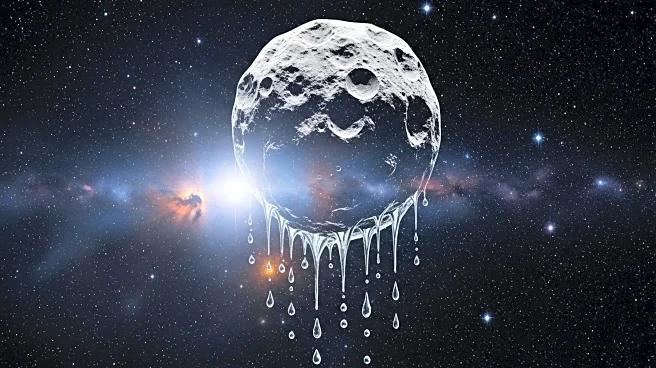What's Happening?
Scientists have discovered evidence of liquid water flowing on the parent asteroid of Ryugu, a near-Earth object, much later than previously thought. The study, based on samples collected by Japan's Hayabusa2 probe, suggests that water existed in liquid form a billion years after the asteroid's formation. This challenges previous assumptions about the timeline of water activity on asteroids.
Why It's Important?
The discovery has implications for understanding the history of water in the solar system and its role in planet formation. It suggests that carbon-rich asteroids may have delivered more water to Earth than previously estimated, influencing the development of Earth's oceans and atmosphere. The findings could reshape theories about the origins of water on terrestrial planets.
What's Next?
Researchers plan to investigate phosphate veins in Ryugu samples to determine the precise age of water flow. Comparisons with samples from other asteroids, like Bennu, may reveal if similar water activity occurred elsewhere. The study could inform future missions to explore asteroids and their potential for delivering water to planets.
Beyond the Headlines
The research highlights the importance of sample-return missions in advancing our understanding of planetary science. It also underscores the need for innovative techniques to analyze small samples with high precision.









